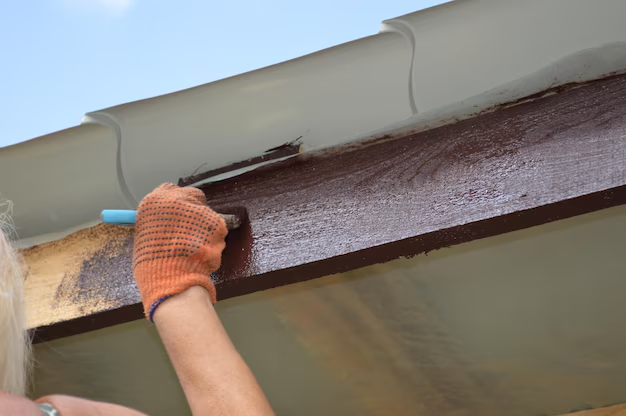Your Guide to How To Prevent Water Damage In Your Home
What You Get:
Free Guide
Free, helpful information about Home Maintenance & Repairs and related How To Prevent Water Damage In Your Home topics.
Helpful Information
Get clear and easy-to-understand details about How To Prevent Water Damage In Your Home topics and resources.
Personalized Offers
Answer a few optional questions to receive offers or information related to Home Maintenance & Repairs. The survey is optional and not required to access your free guide.
Protect Your Home: Effective Strategies to Prevent Water Damage
Water damage can be a homeowner's worst nightmare, often creating costly repairs and disruptive situations. From leaking roofs to basement floods, the potential for water damage is ever-present. Fortunately, with proactive steps, you can safeguard your home against costly damage. This article provides practical strategies to keep water at bay, ensuring your home remains a sanctuary.
Regular Roof Checks and Maintenance
Your roof is your home's first line of defense against water intrusion. Inspect your roof regularly for missing or damaged shingles, tiles, or seals. Look for pooling water, mold, or mildew, which can indicate underlying issues. Always clean your gutters and downspouts to ensure that water is effectively channeled away from your home. Regular maintenance can prevent water from seeping into your attic and walls, saving you from extensive damage and repairs.
Seal Windows and Doors
Windows and doors are common entry points for water. Use waterproof sealants or weather stripping around these openings to close any gaps or cracks. This simple yet effective measure helps prevent water from infiltrating your home during heavy rains or storms.
Install a Sump Pump
If you have a basement, equipping it with a sump pump is an investment worth making. This device can prevent flooding by automatically pumping out water that accumulates in your basement due to heavy rain or a plumbing mishap. Regularly test your sump pump to ensure it's in good working condition and keep a battery backup in case of a power outage.
Stay Vigilant for Plumbing Issues
Leaky pipes and faucets can quickly lead to significant water damage if left unchecked. Regularly inspect your plumbing system for leaks, especially in concealed areas like under sinks and behind appliances. If you notice damp spots, increased water bills, or the sound of dripping, act quickly to repair the source before it escalates into a larger problem.
Improve Your Home’s Drainage System
An effective drainage system directs water away from your home’s foundation. Ensure that the surrounding landscape slopes away from your home. Consider installing drainage channels or extending downspouts to further divert water away. Proper landscaping can significantly reduce the risk of foundation water damage.
Monitor Humidity Levels
Excess moisture within your home can lead to water damage and mold growth. Use dehumidifiers in damp areas like the basement or bathroom, and ensure that these spaces are well-ventilated. Keeping indoor humidity between 30%-50% helps to maintain a healthy home environment and minimize water-related risks.
Taking proactive measures is crucial to preventing water damage within your home, but what happens when you've done everything right, and water damage still occurs? The financial impact can be daunting. Fortunately, there are financial support programs and solutions available to ensure that such unexpected events don't become financial disasters.
Here’s a quick guide to financial resources and support that might assist you:
- 💧 Government Grants: Explore federal aid programs like FEMA’s disaster assistance, which can provide financial relief for emergency repairs.
- 📉 Insurance Adjustments: Check your homeowner's insurance policy for water damage coverage. Understand what’s included in your policy and consider additional coverage if necessary.
- 💡 Home Repair Loans: Some financial institutions offer low-interest loans specifically for home repairs, which might help cover costs related to water damage.
- 💳 Credit Card Offers: For immediate expenses, consider using credit cards with zero or low-interest offers for new purchases, allowing you to manage upfront costs without additional interest burden.
- 🎓 Educational Grants: For students affected by home water damage, check if your education institution offers emergency grants to support ongoing studies during home repairs.
Being prepared not only involves taking precautionary measures but also knowing that financial and educational resources are available to provide support when life throws an unexpected curveball. Acting swiftly can prevent future stress, ensuring both your home and financial health remain secure.
What You Get:
Free Home Maintenance & Repairs Guide
Free, helpful information about How To Prevent Water Damage In Your Home and related resources.

Helpful Information
Get clear, easy-to-understand details about How To Prevent Water Damage In Your Home topics.

Optional Personalized Offers
Answer a few optional questions to see offers or information related to Home Maintenance & Repairs. Participation is not required to get your free guide.


Discover More
- Common Electrical Problems And How To Fix Them
- Common Plumbing Issues And How To Fix Them
- DIY Home Repairs Every Homeowner Should Know
- Home Maintenance Tips For First-Time Homeowners
- Home Maintenance Tips For Older Homes
- How To Avoid DIY Home Repair Disasters
- How To Clean And Maintain Your Home's Windows
- How To Extend The Life Of Your Home Appliances
- How To Fix a Leaky Roof
- How To Identify Structural Problems In Your Home
